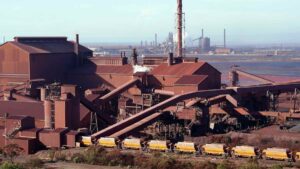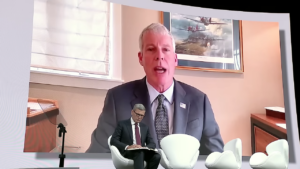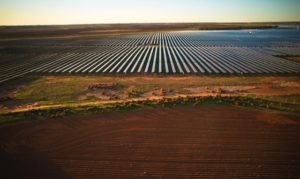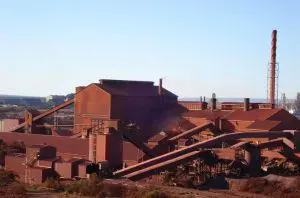The former chairman of the Australian Renewable Energy Agency, Greg Bourne, says the decision by the Turnbull government to axe grants to new technologies and innovative projects may end up being more of a hindrance than a help to clean energy innovation in Australia.

Bourne, who was chair of ARENA until earlier this year, when the government decided not to review the contracts for him and other directors, says the decision to effectively de-fund ARENA and move to a system of equity and debt support could see Australian innovation move overseas.
“If one looks at multiple ARENA projects that have been kicked off since 2012, a significant number of them required the grant to move things along the innovation chain,” Bourne told RenewEconomy in a phone interview on Wednesday.
“That innovation chain does not start near commerciality. It starts earlier. If we are to be an innovation nation we have got to start earlier in the innovation chain, and that requires grant, equity and debt.”
Bourne said that ARENA had been looking at equity and debt funding options, but found that grants were critical for many early stage projects. While Turnbull says the new Clean Energy Investment Fund will fill a “funding gap”, it may be creating another one further up the innovation chain.
“If you do not help steward all the way along the innovation chain, you might risk having ideas and projects that are stranded, stuttering investments.
“In so far as other countries have a more innovative way of looking at things, that innovation will then flow overseas to other corporations and other countries,” Bourne said. “They will go overseas, or they will languish.”
Bourne also responded to criticism from environment minister Greg Hunt, who said there had been no follow-through on whether grant funding had been effective or not.
Bourne noted that ARENA had inherited a bunch of expensive projects from grant allocations made by government departments under the Howard and Labor governments. It had recalled about $600 million of funds because the projects did not stack up.
“Greg (Hunt) should recognise the fact that we inherited so many projects kicked off by governments of both colour – going right back to the Howard era. We put a technical and commercial view on those projects and cancelled $600 million of them.” This included the Whyalla solar array, and the Victorian wave energy project.
“Under our mandate, we have stimulated some very, very good ideas and we have helped stimulate renewable energy innovation in Australia.”
John Connor, from the Climate Institute, said he was also concerned about the future of the important grant making role of ARENA.
“ARENA plays an important role in bringing forward Australian innovations and it should retain the full benefit of grants, as well as debt and equity, to mobilise innovation. The announcement today has little detail about the capacity of ARENA to make grants,” he said in a statement.
“It would be a big mistake to lose ARENA’s grant making lever. In addition, the government will have to deal with the legislative fact that it should be putting $1.3 billion into that task.”
The Clean Energy Council said it was concerned about making two steps forward and one step back. “We need to see further detail to understand the extent to which it could fill the void left by abolishing capital grants,” CEO Kane Thornton said.
The Australian Solar Council said early stage research was speculative “by its very nature”. CEO John Grimes said “almost no projects will be fundable under this model. This will cut the guts out of renewable innovation in Australia.”
While Hunt was critical of ARENA, Turnbull was effusive in his praise of the CEFC, and CEO Oliver Yates and chairman Jillian Broadbent in particular.
Yates told RenewEconomy in a separate phone interview that he was pleased the government was promoting “risk taking” in clean energy investment, and to ensure that the taxpayer could benefit from the risk/rewards by getting a return on equity and debt support for new ideas and projects.
“If they receive funding from us we should be offering a return to taxpayer support,” Yates said. The Clean Energy Innovation Fund, using existing monies from the CEFC, will seek a return of 1 per cent over the bond rate, compared to 4 per cent from the CEFC.
Asked about Turnbull’s reference to the solar tower and storage proposal at Port Augusta, which would now come under the remit of the CEIF, Yates was noncommittal:
“There has been a lot of work done on projects like that. Port Augusta is a great site for large-scale solar, and a good location to be looked at. We have to assess all projects, like we have done with the CEFC, to work out and generate a reasonable risk adjusted return to taxpayers.”
The CEFC provided finance for a solar thermal project to the south of Port Augusta, which is using heat to grow tomatoes in a giant greenhouse.










